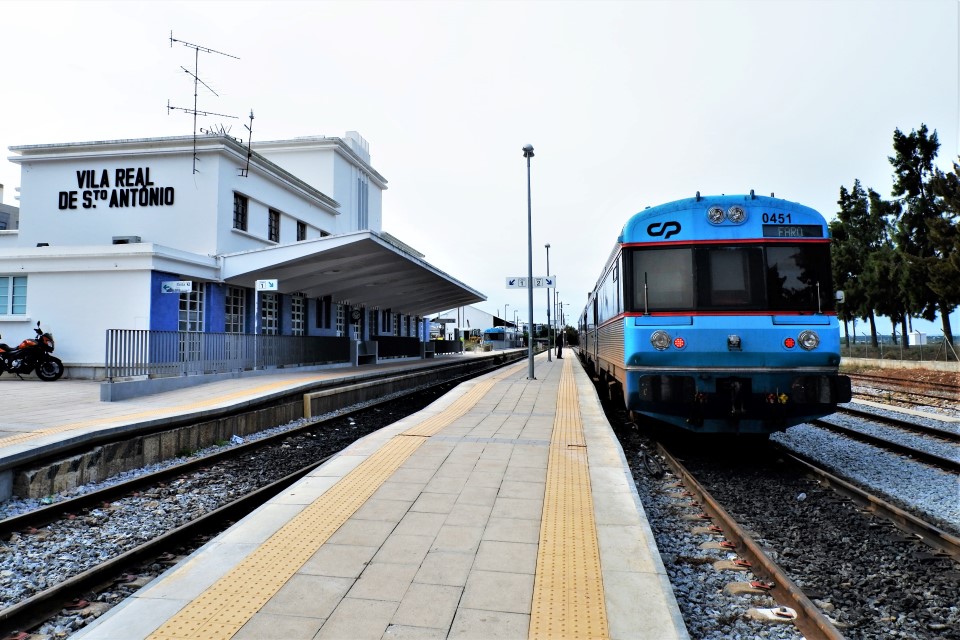The PCP accuses the Government of launching a new National Railway Plan «without priorities, timetable, nor guarantees and quantification of the financing necessary for its execution» and of leaving out of this document investments and fundamental measures for the Algarve.
In an analysis of National Railway Plan, whose Public Consultation ended on the 28th of February, the secretariat of the Directorate of the Algarve Regional Organization of the PCP was very critical not only in relation to the most recent plan, but also in relation to Ferrovia 2020, on which «no critical assessment was made».
«In fact, it is easier to make plans than to build railway lines, it is cheaper to make promises than to buy trains, it is simpler to replace unfulfilled plans with new plans than to make a serious assessment of what was previously planned», they accuse.
The communists consider that it is “urgent to schedule, guarantee the necessary funds and, above all, carry out a series of investments in the network”.
One of them, "the modernization and electrification interventions", focused on the "existence of sufficient material in terms of quantity, quality and reliability to guarantee full operation from Lagos to Vila Real de Santo António (which continues to require more than 3 hours on a trip)".
New rail links to the University of Algarve and Lisbon Airport Faro and the reactivation of concordance in Tunes, «which this PFN ignores», are other identified needs.
«The hypothesis presented in the PFN for the connection Lisbon – Évora – Beja – Faro – Seville, in view of its continuity for Huelva and Seville, is a valid hypothesis, but presented for too long a period. It is necessary to guarantee its implementation, without letting the Algarve-Andalusia connection drag on in time, since it is a solution that has long been consensual in the region», defends the PCP Algarve.
Another issue is the possibility of extending the Intercidades service to Vila Real de Santo António – theSomething that has already been announced by Infraestruturas de Portugal and what will happen from the moment the line is electrified. «The PFN considers this possibility but completely ignores the size of the railway platforms (Tavira is 80 meters). If there is no project to change the size of the stations' platforms, in reality this will never go beyond paper».
The PCP also requests that «intervention be ensured in various infrastructures - in stations and in the reinforcement of their garrison, in the stops, in the resumption of the process of suppression of level crossings, introducing improvements that have long been demanded by users, workers and populations », as well as the reactivation of railway stations «whose populations have long struggled for this objective», namely that of São Marcos da Serra.
Emphasizing that a «PFN cannot be just a National Plan for the Railway Network and its services», the PCP says that «there is no railway without trains and without railway workers. Without a CP that brings together the infrastructure and operator, without hiring the missing railway workers, without considering the production of trains in Portugal (as it existed until the beginning of the century) without strong public investment, the implementation of this plan will have the same fate of others who remain only on paper».
«In the coming decades, with the year 2050 as the horizon (date assumed by the PFN), the country must mobilize the necessary resources through the State Budget, community funds and other possibilities. All of this involves an investment, which is estimated to be around 30 billion euros and which should assume a budgetary weight of 0,5% of GDP, every year, allocated to investments in the railway», they add.
For the PCP, «the year 2023 cannot represent more postponements and announcements like those that have been made over the years. For the PCP, investment in the railway throughout this first half of the XNUMXst century can be, if integrated into a development strategy for the country and the Algarve region, a key element for its modernization and progress».



















Comments